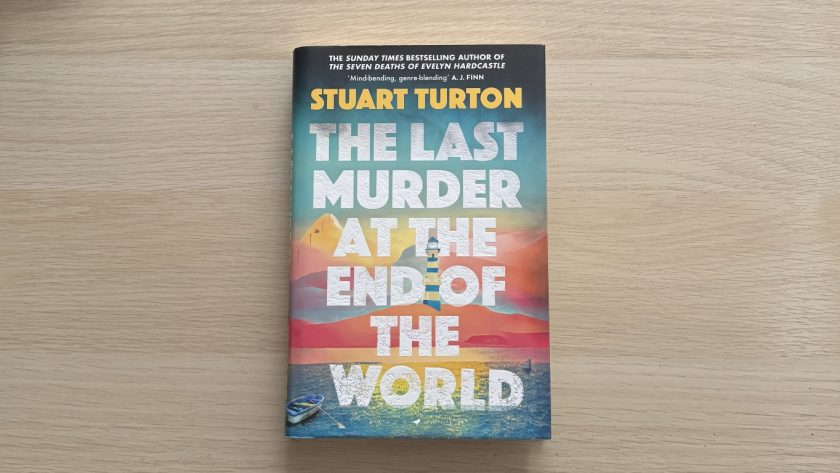Stuart Turton writes books that are difficult to review. They’re incredibly easy to enjoy (see my review of The Devil and the Dark Water); very difficult to explain.
What can I tell you about The Last Murder at the End of the World that won’t undermine the wonderfully twisty-turny narrative? How can I possibly tell you why I like a book like this in a way that doesn’t contain spoilers?
Curse you, Turton! I’m trying to do you a favour here – you really are your own worst enemy.
This book is about a lot of things. It’s about greed; it’s about freewill; it’s about prejudice; it’s about what it means to be human; it’s about compliance and control; it’s about hippies.
It’s about the last pocket of human existence, who survive on an island that is protected from the destructive fog that has covered the rest of the Earth. To touch the fog means near instantaneous, horrendously painful death.
So when a murder triggers the collapse of the barrier, leaving the villagers just hours to find the killer, things get a little tense. There’s just one problem: everyone on the island has had their memory of the past few hours wiped. They go to bed on a normal night and wake up to absolute chaos.
This book is packed full of interesting characters and wonderful twists and turns. It’s a narrative that keeps unfolding and builds an interesting conclusion. The equally bleak and hopeful world reminds me in some ways of the video game Horizon: Zero Dawn, a wonderful, mystery-ridden post-apocalyptic narrative with real soul.
Intricately plotted and intriguingly puzzling, as all of Stuart Turton’s books are. However, for me I felt that one key pillar of the central mystery – or rather, why the mystery is even a mystery in the first place, if that makes sense – seems rather trivial. It’s perfectly justifiable, but to discover most of the complexity of the set up comes from that seems a little underwhelming.
That’s always a problem with these kinds of mind-bending stories, though. Making the reveal as good or better than the setup is a mighty challenge. Stuart Turton pulled it off brilliantly in his first two books, and it’s fair to say he does again. There are so many moving parts and so much intrigue that one somewhat lacklustre element doesn’t undermine the entire thing.
Once again, Stuart Turton’s brilliant imagination is being thoroughly showcased in this dystopian novel. I must admit I found the opening a little bit slow, and somewhat lacking the intrigue of his other two novels, but when the plot kicks off – and it really does – I was absolutely hooked. He is one of the most imaginative and inventive authors that I’ve read, and I can’t wait to see what he comes up with next.


